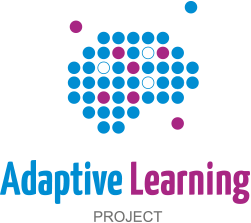Our aims
- Develop a computerized adaptive application for the dynamic assessment and enhancement of executive functions.
- Evaluate and intervene on children´s executive functions.
- Help children´s with neurodevelopmental and learning disorders to develop their abilities.
- Offer adaptive resources and support materials to the teachers, educational psychologist and researchers.
- Favour all students’ participation and learning, especially students with neurodevelopmental and learning disorders, and favour their education and social inclusion process.
Specific objectives of our project
1. Design the web platform from which games and adaptive applications of assessments and interventions will be developed.
2. Design the content and structure of the items making up each game and the device’s applications in a physical format.
3. Establish the mediation system (graduated prompts, metacognitive guide and feedback) associated with each item or set of items.
4. Design/computer development as interactive games with a set of assessment/intervention items that will make up the C-DAOEF device.
5. Apply and validate the applications on a small scale while developing and finishing them.
6. Quantitatively and qualitatively analyse the applications in terms of their validity in relation to the results and evaluations made by teachers and users.
7. Calibrate and assemble the items according to the results and the configuration settings for the set of assessment/intervention activities.
8. Obtain the final C-DAOEF device configuration.
9. Obtain the configuration of the database that will allow the information obtained from applying games and activities to be recorded and stored.
10. Prepare a manual of application and decide the channels to diffuse the results and training for teachers.
The addressed population
1. Schoolchildren aged between 4 and 16 years with Special Educational Needs derived from neurodevelopmental and learning disorders.
- Autism Spectrum Disorder (ASD)
- Attention-Deficit Hyperactivity Disorder (ASHD)
- Intellectual Disability (ID)
- Specific Learning Difficulties (SLD)
- Specific Language Impairments (SLI)
2. Teachers of special education, and hearing and language, educational psychologists, speech therapists and classroom teachers who usually work with schoolchildren in inclusive education contexts.







